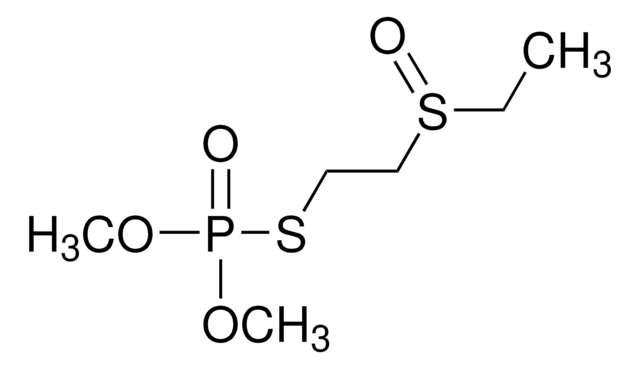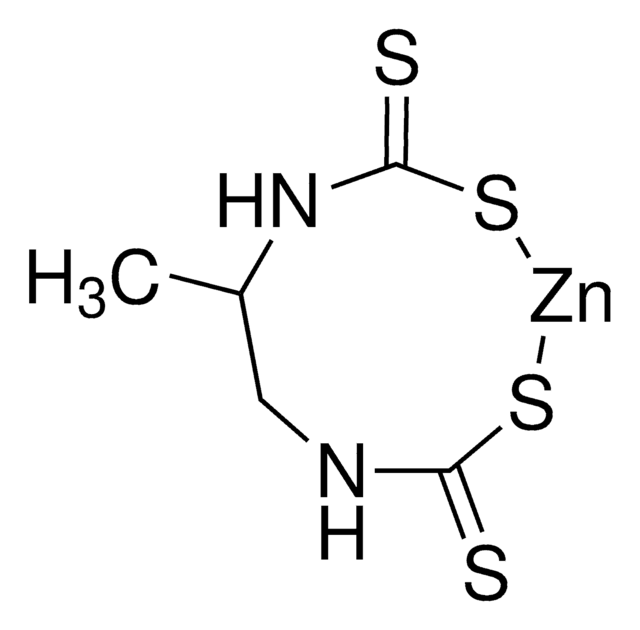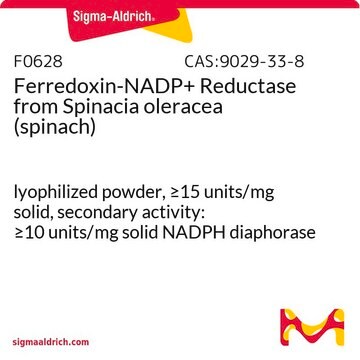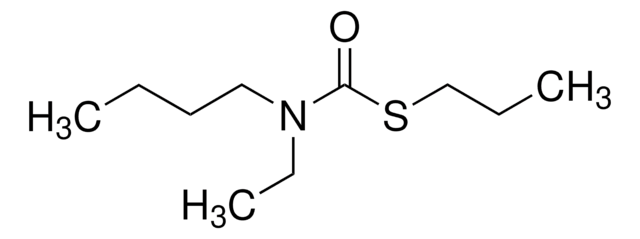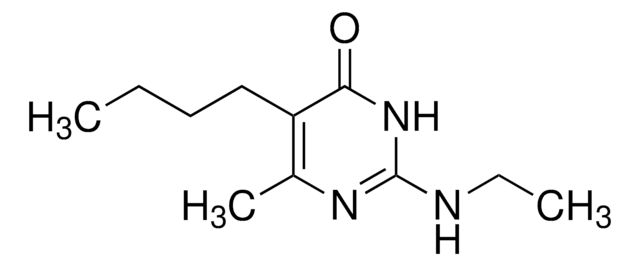33970
Mepanipyrim
PESTANAL®, analytical standard
Sinónimos:
4-Methyl-N-phenyl-6-(1-propynyl)-2-pyrimidinamine
About This Item
Productos recomendados
grade
analytical standard
Quality Level
product line
PESTANAL®
shelf life
limited shelf life, expiry date on the label
technique(s)
HPLC: suitable
gas chromatography (GC): suitable
application(s)
agriculture
environmental
format
neat
SMILES string
CC#Cc1cc(C)nc(Nc2ccccc2)n1
InChI
1S/C14H13N3/c1-3-7-13-10-11(2)15-14(17-13)16-12-8-5-4-6-9-12/h4-6,8-10H,1-2H3,(H,15,16,17)
InChI key
CIFWZNRJIBNXRE-UHFFFAOYSA-N
¿Está buscando productos similares? Visita Guía de comparación de productos
Application
Legal Information
signalword
Warning
hcodes
Hazard Classifications
Aquatic Acute 1 - Aquatic Chronic 1 - Carc. 2
Storage Class
11 - Combustible Solids
wgk_germany
WGK 2
flash_point_f
267.8 °F
flash_point_c
131 °C
ppe
Eyeshields, Faceshields, Gloves
Elija entre una de las versiones más recientes:
¿Ya tiene este producto?
Encuentre la documentación para los productos que ha comprado recientemente en la Biblioteca de documentos.
Nuestro equipo de científicos tiene experiencia en todas las áreas de investigación: Ciencias de la vida, Ciencia de los materiales, Síntesis química, Cromatografía, Analítica y muchas otras.
Póngase en contacto con el Servicio técnico

